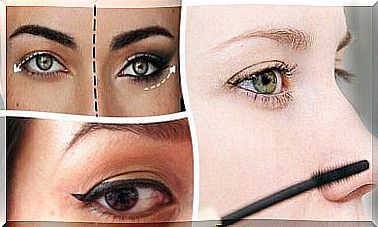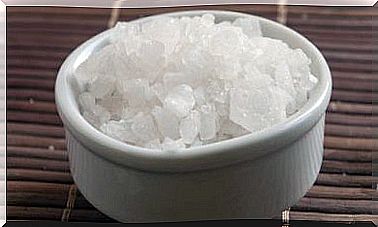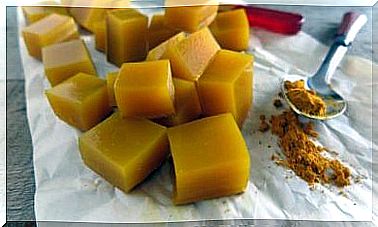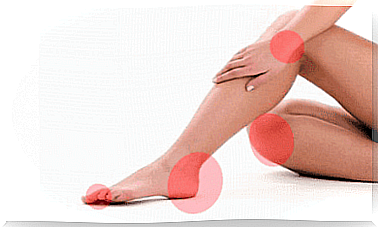Why Should We Ban Plastic And Teflon From The Kitchen?
Since plastic utensils and Teflon are not as good as we imagine, we should replace them with healthier options such as glass or ceramic.

In this article, we explain how banning plastic and Teflon will help you prevent possible health problems.
Today, we tend to be very interested in the ingredients of the foods we eat.
However, we often forget that it is also important to select the containers and utensils we use for these foods.
You may have already heard of the dangers of using certain plastics or other materials.
Bisphenol A in plastic
Bisphenol A, short for BPA, is a substance found in many plastic containers.
According to several scientific studies, BPA can negatively affect hormonal balance, and it is linked to pathologies such as diabetes, obesity, infertility, breast or prostate cancer, cardiovascular problems, developmental alterations. neurological and cerebral, and behavioral disorders.
In France, its use is already banned and the European Union has banned the sale of plastic bottles containing this product, thus copying the United States and Canada.
In addition to bisphenol A, there are other potentially toxic substances such as phthalate or expanded polystyrene.
In this article, we will tell you how you can avoid these effects on your health.

How to avoid BPA in plastic?
Any plastic container should have a recycling code printed usually at the base.
You should always look at this code to know what plastic it is, because not all products contain BPA and are not so harmful to health.
The plastics that contain more amount of BPA are those with the numbers 3, 7 and 10.
According to the United States Special Unit for Child Environmental Health, the least harmful plastics are the following numbers:
- 1 (PETE).
- 2 (HDPE).
- 4 (LDPE).
- 5 (PP).
In addition to choosing these plastic products when you have no other option, it is also important to avoid reusing plastic bottles, as their prolonged use facilitates the release of toxic substances.
Finally, it will be necessary to avoid at all costs subjecting the plastic to high temperatures, such as those of microwaves. This heating process releases chemicals even more easily.
As soon as you can, ban plastics or even cans because, in general, they also contain an interior coating which is harmful.
Opt for glass, ceramic, wood or stainless steel containers.
Teflon
Scientific studies have detected significant levels of Teflon in the blood of the majority of people, due to the gradual effusion of this non-stick material which covers pots, pans and baking sheets.
The toxic substance associated with teflon is acid perfluorooctanoic (PFOA) which has been shown to be potentially carcinogenic.
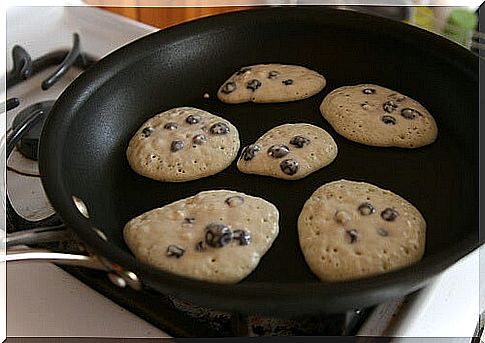
Alternatives to Teflon
Old aluminum utensils are also not recommended because exposure to this heavy metal is linked to the onset of neurodegenerative diseases such as Alzheimer’s or Parkinson’s.
So, the healthiest materials in the kitchen are:
- Glass
- Ceramics
- Titanium
- Stainless steel
- Molten iron
- Natural terracotta
- Wood
- Bamboo
How to choose utensils without plastic and Teflon?
Some of these materials may surprise or seem unfamiliar to you, but be aware that there are more and more stores that market containers of natural materials that do not contain compounds that are toxic to health, in the long run.
It will take some research and testing of pots and pans to find the most suitable for the dishes you are making.
Some allow you to cook without the food sticking, others work well at high temperatures, in other words, each material has its secret.
In this way, you will also be able to discover new types of cooking and even be inspired by other cultures, as is the case with bamboo steamers or the tagines of Arab cuisine, made from terracotta.
It will also be necessary to take into account the prices because unfortunately, the most ecological and effective products, in titanium, are generally the most expensive.
Conversely, ceramic products are used more and more and you can find them relatively inexpensive.
